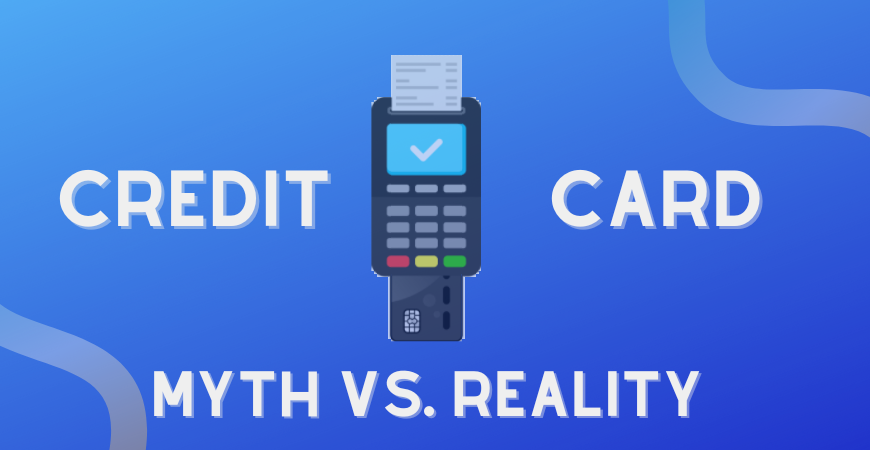
There are so many Credit Card misconceptions out there. Let's talk about some of them and why they are not true!
Opening a credit card is something a lot of us do once we turn 18. Leading up to my 18th birthday I was excited to finally be able to open a credit card and feel a little bit more “grown up” but that kind of responsibility scared me a bit. I made sure to research what to do and what not to do when opening my credit card. I didn’t really know where I could find reliable and accurate information so of course, I settled for google, youtube videos and even TikToks. Along the way I found a lot of advice, some really good advice and other advice that wasn’t necessarily true. There are a lot of myths around credit cards and building credit. Some of these myths are some that I at one point believed and myths that I still hear my friends, family and peers talking about.
Myth: Leaving a balance on your credit card will increase your credit score
Reality: Paying your credit card in full each month will benefit you the most
To understand why this myth is a lie, we need to understand what makes up our credit score. 30% of our credit score is made up of our credit utilization, which is essentially the percentage of your credit limit that you use. For a healthy credit score, you want to keep your utilization ratio at 30% of less. With keeping a balance on your card, you are increasing your credit utilization ratio which could harm your credit score. Also, this advice will lead to you paying more in interest. When you leave a balance on your card, you will be charged interest on that balance, which does not benefit your score in any way but rather, makes you spend extra money that you wouldn’t have if your card was paid in full.
Myth: Increasing your credit limit will harm your credit score
Reality: Increasing your credit limit can benefit your credit score
Asking for a credit limit increase at least once a year is actually something great to practice in order to help boost your score. As I previously mentioned, 30% of your credit score is made up of your credit utilization ratio. The lower your credit utilization ratio, the better. If you spend a fixed amount on your credit card each month and you are approved for a credit limit increase, if you keep spending that same amount on your card, you will now have a lower credit utilization ratio than prior to your credit limit increase.
Myth: Don’t open a new credit card without closing an old one
Reality: Closing old cards might harm your credit score
15% of your credit score is actually composed of the length of your credit history. The longer you have your accounts open, the healthier your credit score will grow. Closing an account, especially an account you have had for a while can be harmful to your credit score because it will reduce the average age of your credit history. Having credit accounts open for long will help increase your length of credit, which in turn will increase your credit score and will help you establish yourself as a responsible borrower.
Myth: Checking your credit score is harmful
Reality: It is important and a good thing to monitor your credit score
Checking your credit score is classified as a credit inquiry. There are two types of credit inquiries, the first one is a hard inquiry. A hard inquiry is when a lender checks your credit score before approving a credit account such as a car loan, mortgage or a new credit card. Too many hard inquiries within a short amount of time can be harmful to your score. The other type of inquiry is a soft inquiry, this inquiry does not affect your credit score in any way. Checking your credit score is considered a soft inquiry, so it does not affect your score whatsoever. It is vital to keep up with your score to make sure it is progressing. Checking your credit score on your banking app or any credit bureau website (Experian, Equifax, TransUnion) can be super beneficial and most of the time they will let you know what might be bringing your score down.
The Truth Is…
Opening any credit account is a huge responsibility. However, it is not something that should be feared, but rather be seen as a tool. It is also very important to not believe every single thing you heard about credit cards. I urge you to take everything you hear with a grain of salt and do your own research and educate yourself on it to ensure you know the correct information. Caring for your credit score is something that we should all practice, it is what will dictate if we qualify for home loans, auto loans and much more.
Author:
 Melissa Rodriguez
Melissa Rodriguez
Bobcat Financial Coach
Melissa is a Bobcat Financial Coach alumna at the University of California, Merced. Read more about her here!








